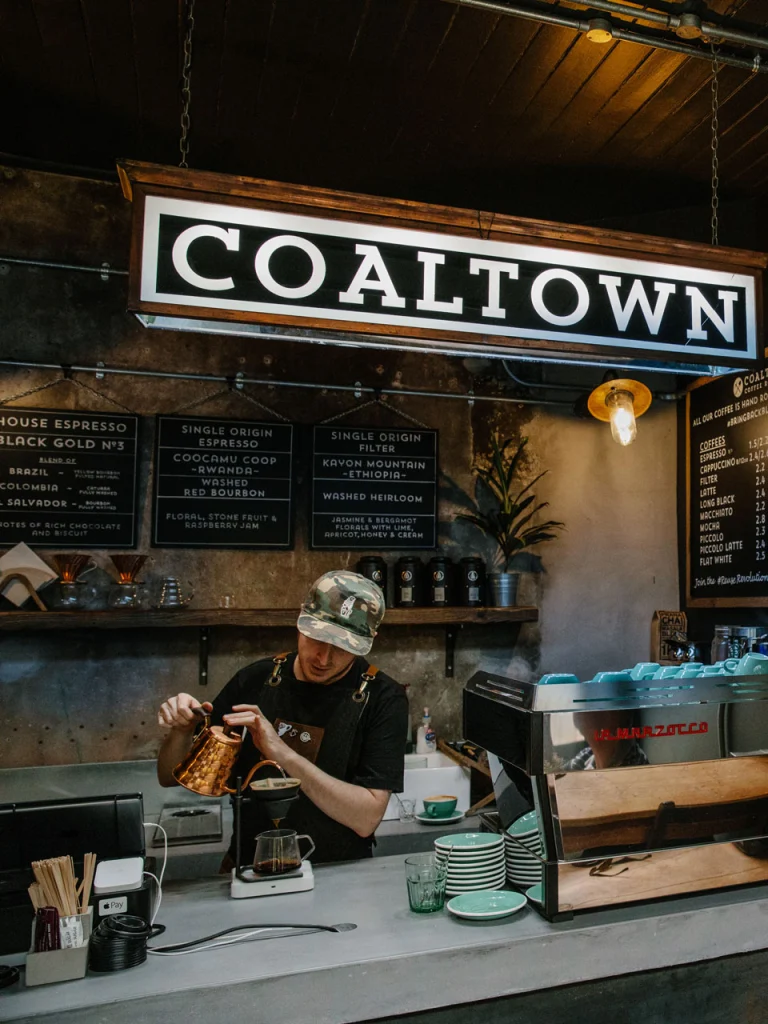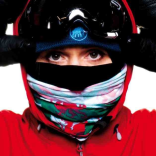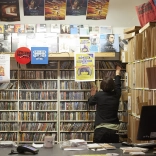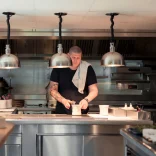The whole concept of Coaltown was founded on finding a photograph of my great-grandfather. He was a miner, like most of my family. He’s from the era when Ammanford was a thriving community, local industry was booming, and the town was a really happy place to live. The last colliery closed in 2003 and there’s very little industry here, so people tend to move away. And it shouldn’t be like that. It’s a beautiful place to live. I love my home, and I’d love to see people being proud of Ammanford again.
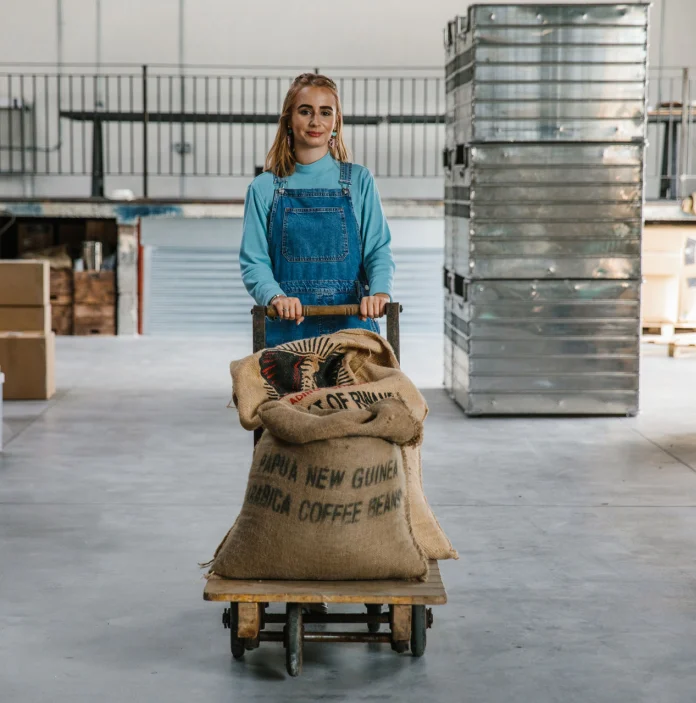
How did you get into the coffee business?
I was brought up in it. My parents opened the first café-deli in Ammanford. It was really high-end, and it lifted the town. You get shops of similar quality opening and it’s like a boom again. When they sold the shop in 2008, Ammanford kind of went back to the old ways. It’s amazing how much of a difference you make if you bring in something that’s really special. So we said, ‘Let’s do that with the roastery.’ The boom in speciality coffee had started, so when we set up Coaltown it was to regenerate Ammanford through a new form of black gold and at the same time bring a roastery to Wales that was very focused on provenance and sustainability.
How do you get a roastery up and running?
It costs a lot of money to buy a roaster, and I had nothing. So my dad and I built our own roaster out of a barbecue. It has a drum inside that rotates and agitates the green coffee as it’s heated. Where it fell down a bit was the cooling tray. Commercial roasters suck cool air in, which separates your chaff. But we made ours out of a fan from a Ford Ka car, which cooled the beans by blowing, so it was constantly raining chaff. It made lots of mess, but it was an amazing roaster.
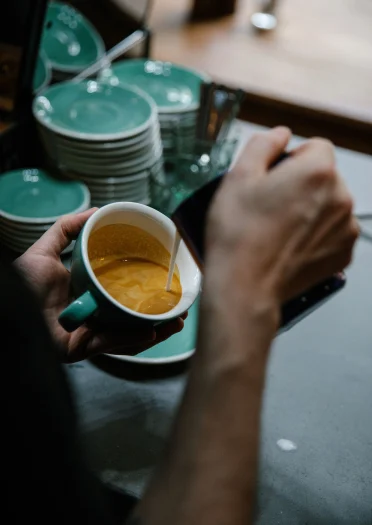
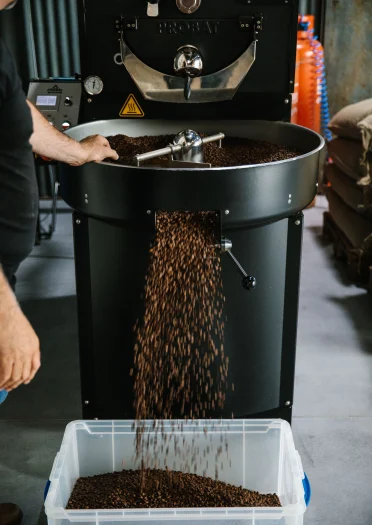
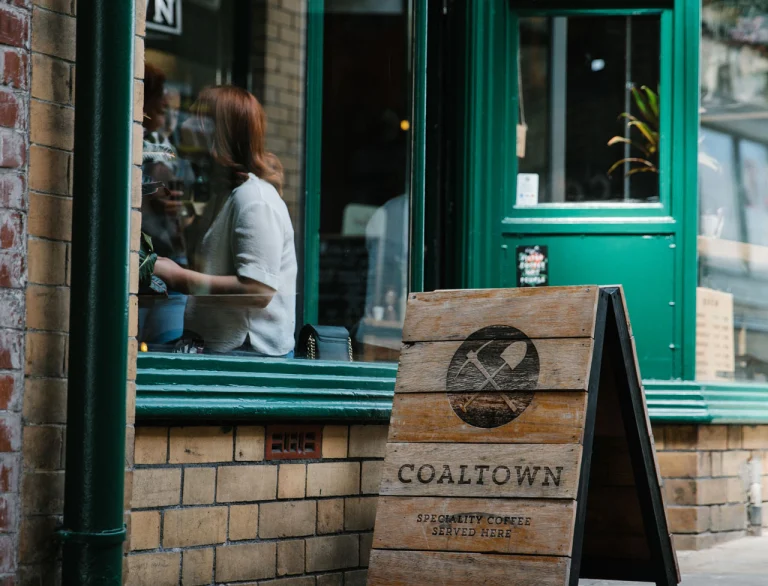
Does it still work?
Yes, but it can only roast 4kg of coffee every 15 minutes. We raised the money to buy a commercial 12kg roaster, and we’ve recently bought a 75kg machine, which makes life a lot easier. I’m very focused on heritage models. The only issue is they’re so sought-after they disappear as soon as they’re on the market. When a 1950s roaster came up for sale in Italy, we blindly put the money down because we really needed it. Three weeks passed, no sign of the thing. When it eventually turned up, it was a collection of rusted lumps of metal. They had photos of where it had been found, scattered around a farmyard outside Rome. The drum had a cockerel walking across the top. We spent two years restoring it, but it’s been worth it. It’s one of the rarest ever made.
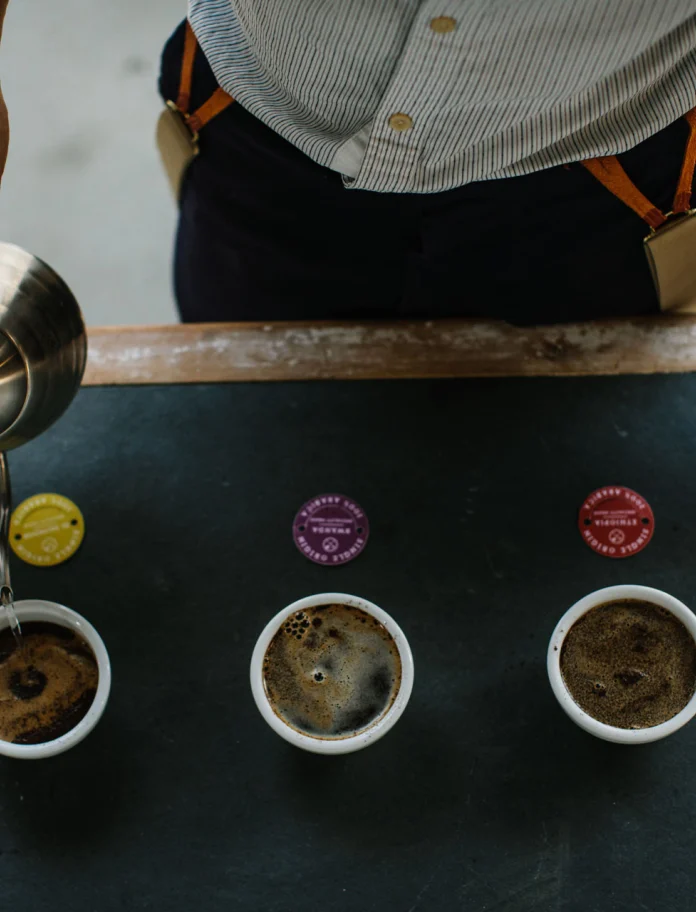
Where do you sell your coffee?
We supply about 240 customers, mostly in Wales, but we also sell in Selfridges, and to places like Oxford, London and Bristol. We’ve also got two outlets in Ammanford itself. I went to New York, the way they do things in Brooklyn is really inspiring. I thought, ‘We can do that in Ammanford.’ So we found a unit in the Edwardian arcade. The rent wasn’t ridiculous so it was a good opportunity to test our ideas. It’s tiny - 17 seats max - but we’ve had people travelling from London and Bristol to come and see it. It’s been a great test-bed for the new roastery that we’ve moved into. All of our production is done here now. We’ve also got a café, pizza oven, office, kitchen and training mezzanine. We’re open from eight until eight, seven days a week.
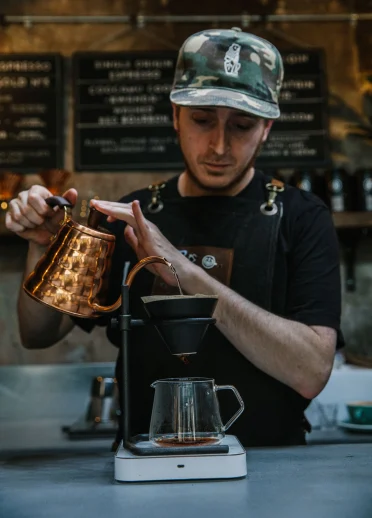
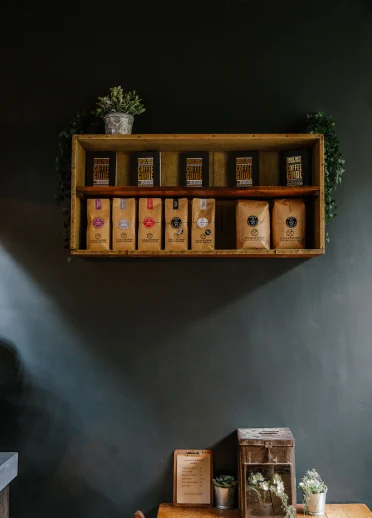
So does that make you a major local employer?
That’s the plan. And we’re very focused on upskilling: we’ve set up the Coaltown Academy which is all about training local people up and finding them work in the coffee industry, either with one of our wholesale customers or as part of our team. We employ around 30 people and we have also had three Coaltown Academy members successfully complete training who we have found work positions for in the local industry.
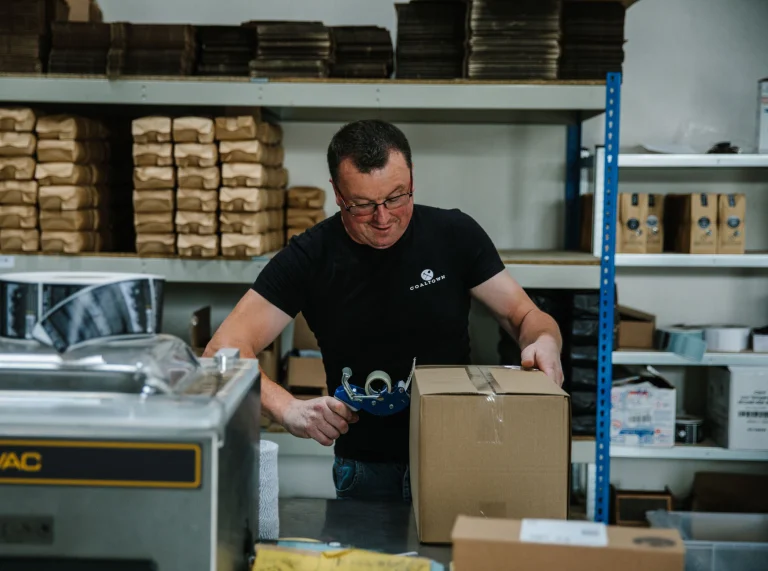
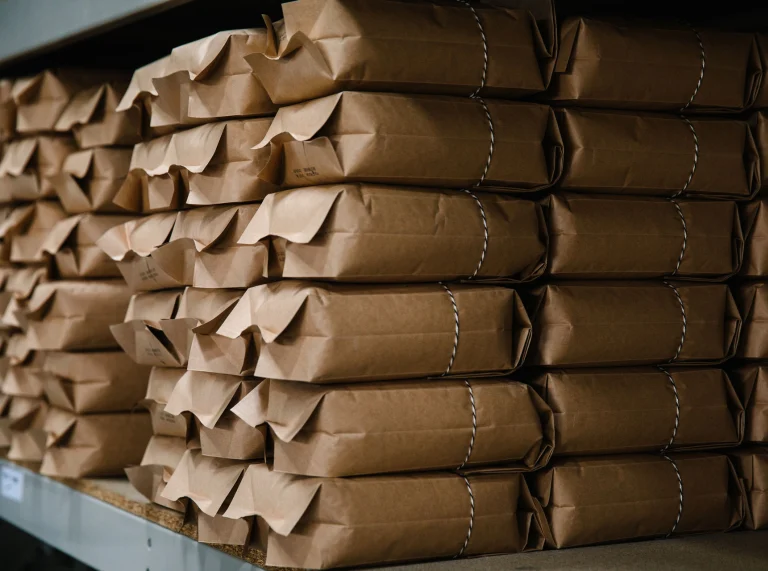
So can coffee really help to inspire regeneration in Ammanford?
I hope so. I just want people to change their interpretation of home and think, ‘You know what, we could do a business from home. There’s no reason why we can’t.’ We’re in an age now that the internet is the main selling point. Our website is what generates all of our leads. So if you can do it in rural Wales you can do it anywhere. Brooklyn and Shoreditch were deprived areas of New York and London. Why can’t you do the same thing in Ammanford?
How did you feel when Lonely Planet named you as one of the UK’s top roasteries?
That had a massive effect. Lonely Planet came to visit us in the old roastery, and we just had a general chat. I didn’t realise how much of a big deal it was until I had people ringing me to be on BBC News and Talk Radio. It was really bizarre. But to be named one of the five best coffees in the UK, it’s blown us away.
